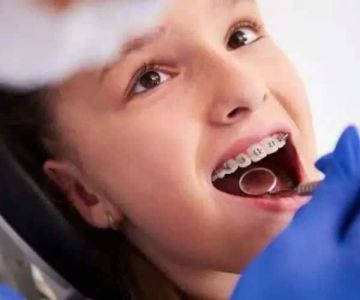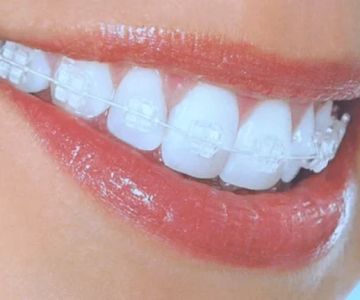What Happens If Bite Problems Are Left Untreated?
For many individuals, the term "bite problems" might seem inconsequential, yet these dental issues, medically referred to as malocclusion, can have significant repercussions if not addressed. As individuals, especially Americans who are conscious of dental health and confident smiles, understanding the gravity of untreated malocclusion is vital. Comprehensive awareness can guide timely interventions, thereby ensuring optimal oral health.
Bite problems encompass a range of dental misalignments and can often be identified when the teeth do not fit perfectly. While some may view slight imperfections as mere cosmetic concerns, the underlying impacts extend far beyond aesthetics. This article will delve into the far-reaching consequences of ignoring malocclusion, particularly within the American populace, known for prioritizing dental care. Let's explore how neglecting these issues can lead to a cascade of oral and systemic health challenges.
Dental Health Deterioration
One of the immediate consequences of untreated bite problems is the deterioration of dental health.
When teeth are misaligned, it becomes significantly more challenging to maintain proper oral hygiene. Dentistry Toothtruth points out that overlapping or crowded teeth make it difficult to reach certain areas, leading to an increased risk of plaque buildup and, subsequently, cavities.
These issues, if not addressed, can lead to a cycle of cavities, fillings, and potentially more invasive procedures such as root canals or extractions.
Onset of Jaw Pain and Discomfort
Ignoring malocclusion can lead to the onset of chronic jaw pain and discomfort.
Incorrect alignment places additional strain on the jaw muscles and joints since they must overcompensate to achieve a functional bite.
This can result in temporomandibular joint disorder (TMJ), characterized by symptoms such as clicking jaw, headaches, and severe facial pain.
Proactive orthodontic treatment can prevent such discomfort and enhance the overall quality of life.
Impact on Speech and Chewing
Malocclusions often impair basic oral functions such as speech and chewing.
Individuals with significant bite issues may find it difficult to enunciate certain words or sounds, leading to potential social challenges.
Additionally, improper bite alignment means that food is not adequately broken down in the mouth, affecting nutrient absorption and digestive health.
Long-term Systemic Health Implications
Bite problems can extend beyond oral health, potentially influencing overall systemic health.
Chronic oral infections resulting from poor dental hygiene due to misaligned teeth can lead to systemic conditions.
There is growing evidence linking oral diseases to other health issues such as heart disease and diabetes.
Aesthetic and Psychological Effects
The aesthetic and psychological effects of untreated bite problems should not be understated.
Americans, with their emphasis on confident smiles, often face self-esteem issues if dental aesthetics are compromised.
The lack of confidence can impact social interactions and, by extension, personal and professional relationships.
Increased Financial Burden
While some may perceive orthodontic treatments as costly, untreated malocclusion can lead to higher financial burdens over time.
As dental issues accumulate, the need for more extensive corrective procedures increases.
Addressing bite issues promptly can substantially reduce long-term financial commitments toward dental care.
Conclusion
In conclusion, the deleterious effects of leaving bite problems untreated are manifold, impacting dental health, physical comfort, psychological well-being, and financial stability. Therefore, it is imperative to recognize early signs of malocclusion and pursue appropriate dental consultations. Taking action can prevent more serious consequences and ensure a healthier, more confident future.
For more information and expert guidance on managing bite problems, visit Dentistry Toothtruth.




 T. R. Smiles Dental
T. R. Smiles Dental Elmwood Family Dental
Elmwood Family Dental Aspen Dental - Springfield, MO
Aspen Dental - Springfield, MO West Dundee Dental
West Dundee Dental Holistic Dental Wellness Center - Iman Abdeshahian, DMD
Holistic Dental Wellness Center - Iman Abdeshahian, DMD Alameda Crossing Dental Group and Orthodontics
Alameda Crossing Dental Group and Orthodontics The Importance of Oral Health Education During Pregnancy for a Healthy Pregnancy
The Importance of Oral Health Education During Pregnancy for a Healthy Pregnancy Why Skipping Dental Checkups Can Lead to Bigger Oral Health Problems
Why Skipping Dental Checkups Can Lead to Bigger Oral Health Problems Advantages of Porcelain Dental Restorations
Advantages of Porcelain Dental Restorations Best Tips for Brushing Your Teeth Properly for Healthy Gums: Essential Techniques for Oral Health
Best Tips for Brushing Your Teeth Properly for Healthy Gums: Essential Techniques for Oral Health How Can Diabetes Cause Tooth and Gum Problems? Preventing and Managing Oral Health Issues
How Can Diabetes Cause Tooth and Gum Problems? Preventing and Managing Oral Health Issues Healthy Habits for Promoting Good Oral Health and Hygiene: Tips for a Healthy Smile
Healthy Habits for Promoting Good Oral Health and Hygiene: Tips for a Healthy Smile